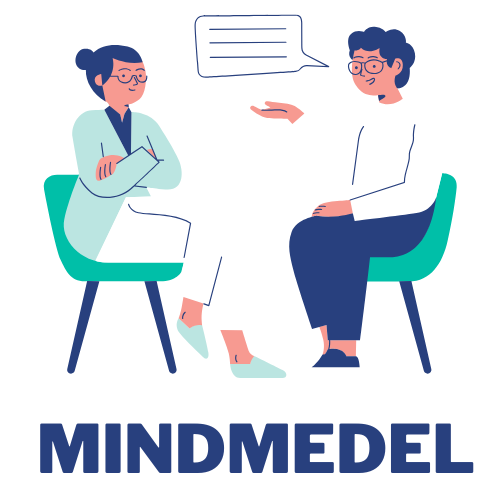Love is an Illusion or a Reality We Create?
If you have ever fallen in love in your life, you won’t be able to leave without reading this entire blog. Today, I will reveal some astonishing truths about your love that will not only surprise you but also leave you captivated and eager to know more about your lover!
The Fascination of Love
Love has been a subject of fascination, exploration, and debate for centuries. From poets to philosophers, scientists to psychologists, all have attempted to uncover its true nature. Yet, the question still remains: Is love an illusion or a reality we create?
This question is not just philosophical; it holds real-world significance for how we approach relationships, handle personal challenges, and find meaning in our lives. Understanding whether love is a biological drive, a social construct, or a mere illusion can help us build healthier relationships, navigate modern dating challenges, and improve our emotional well-being.
5 Key Takeaways:
- Love’s definition varies across cultures, psychology, and philosophy.
- Sociological, psychological, and philosophical views offer unique perspectives on love.
- Love may be an illusion shaped by societal norms and expectations.
- Positive psychology emphasizes love’s impact on happiness and mental health.
- Understanding love’s dynamics can lead to better relationships and dating experiences.
In this article, we will dive into the complex question of whether love is real or an illusion we create, with insights from psychology, sociology, philosophy, and even modern dating dynamics. Let’s begin by exploring the various theories and perspectives on love.
Theories of Love: Exploring Diverse Perspectives
Psychology’s View on Love: More Than Just Feelings
Psychology provides a wealth of theories that explore love’s nature and how it affects our behavior and emotions. Let’s take a closer look at some key psychological perspectives:
Triangular Theory of Love (Dr. Robert Sternberg)
Dr. Robert Sternberg proposed the Triangular Theory of Love, which suggests that love consists of three components:
- Intimacy: The emotional closeness and bond shared between partners.
- Passion: The physical attraction and romantic desire that draws people together.
- Commitment: The decision to maintain the relationship in both the short- and long-term.
According to Sternberg, different combinations of these components lead to different types of love—ranging from infatuation (passion alone) to companionate love (intimacy and commitment) and consummate love (a perfect balance of intimacy, passion, and commitment).
Attachment Theory: Love Through Early Life Experiences
According to attachment theory, the way we form attachments in early childhood influences how we approach love and relationships in adulthood. Psychologists have identified three main attachment styles:
- Secure: Comfortable with intimacy and trust, seeking healthy relationships.
- Anxious: Often worried about the relationship, seeking constant validation and reassurance.
- Avoidant: Prefers independence, avoiding emotional intimacy.
Our attachment style can greatly affect how we experience love and how we interact with our partners.
Neurochemistry of Love
Love is not just emotional; it is also biological. Neurotransmitters such as dopamine, oxytocin, and serotonin play crucial roles in the formation of romantic feelings, attraction, and bonding. These chemicals are responsible for feelings of pleasure, trust, and contentment, which contribute to the experience of love.
Is Love a Survival Mechanism?
Biologically speaking, some researchers argue that love is a survival mechanism designed to ensure reproduction and the survival of offspring. The deep emotional bonds we form with others may have evolutionary advantages, ensuring that we work together to raise children and build communities.
Sociology: Love as a Social Construct
While psychology focuses on the individual, sociology examines love as a social construct shaped by societal norms, cultural expectations, and historical trends.
Cultural Variations: Love Across Societies
Love is not universally defined. Cultural differences shape the way we perceive love, who we love, and how we express it. For example, some cultures emphasize arranged marriages, where love may grow after the marriage, while others prioritize romantic love as the foundation of a relationship.
Societal Influence: Love in Media and Tradition
In modern societies, the media plays a significant role in shaping our ideas about love. Movies, books, and television shows often portray idealized versions of love, which can distort our expectations. For instance, we might expect a whirlwind romance or an unattainable “perfect” partner, leading to unrealistic standards in real relationships.
Love’s Role in Society: Arranged vs. Love Marriages
In some cultures, marriage is seen primarily as a social contract, with love growing over time, while in others, romantic love is considered essential. The question is whether love in these contexts is a deeply felt, real emotion, or if it is simply a product of social expectations.
Philosophical Views on Love: Deep and Thoughtful Perspectives
Philosophers have long grappled with the question of love’s true nature. Here are a few philosophical perspectives:
Plato’s Ladder of Love
Plato’s concept of love begins with physical attraction and evolves towards the love of pure ideas and spiritual connection. According to Plato, love is a journey that transcends the physical realm, ultimately leading to a deeper, intellectual connection.
Nietzsche’s Concept of Love
Friedrich Nietzsche was skeptical of love, viewing it as an illusion created by our desires and instincts. He suggested that love may be driven by power dynamics rather than true emotional connection.
Existentialists on Love
Existential philosophers like Jean-Paul Sartre argued that love is not inherent in the universe but is created by individuals seeking meaning in a world without inherent purpose. Love, in this view, is a personal creation—a response to an otherwise meaningless existence.
Is Love a Universal Emotion?
Philosophers debate whether love transcends time, culture, and personal experience. Some argue that love is a universal, fundamental human experience, while others contend that it is entirely shaped by cultural context.
Is Love an Illusion? Examining the Debate
Arguments for Love as an Illusion
Many argue that love is merely a product of social conditioning and biological instincts, an illusion we create to fulfill our psychological and societal needs.
Love as a Social Construct
The belief that love is a social construct suggests that society and culture shape our expectations and experiences of love. We are taught from an early age that love is the ultimate goal, and this idea is reinforced through media, literature, and family expectations.
Romanticized Love
In movies, books, and TV shows, love is often portrayed as magical and perfect—free from conflict and disappointment. This idealized version of love can lead to unrealistic expectations, making us question whether love, as we see it in the media, is attainable in real life.
The Fading of Infatuation
Love, especially in the early stages, often involves intense passion and infatuation. However, over time, these feelings can fade, leading to doubts about the long-term sustainability of love. Does love endure, or does it simply fizzle out?
Expectation vs. Reality
In reality, love requires hard work, compromise, and conflict resolution. Many relationships falter because people expect constant romantic bliss, unaware that maintaining a healthy relationship takes ongoing effort.
Counterarguments: Love as a Powerful, Real Experience
Despite the arguments suggesting that love is an illusion, many believe that love is a real and transformative experience that cannot be reduced to a mere social construct.
Emotional Impact
The impact of love on our happiness and mental health cannot be ignored. Love enhances emotional well-being, reduces stress, and contributes to a sense of belonging and life satisfaction.
Long-Term Commitment
The endurance of love in long-term relationships, such as marriages, suggests that love is more than just fleeting emotion. Many couples experience deep, lasting love that grows and strengthens over time.
Cultural and Artistic Evidence
Throughout history, art, literature, and culture have celebrated love as a powerful and universal force. This cultural significance points to love’s deep impact on the human experience.
Love’s Transformative Power
Love has the power to change us—growing us emotionally and broadening our perspectives. It can bring out the best in us, helping us evolve into more empathetic, caring individuals.
Positive Psychology’s Take on Love
Positive psychology emphasizes the importance of love for mental health and overall well-being. Loving relationships improve our emotional state, provide us with purpose, and enhance our sense of meaning in life.
Love and Mental Health
Studies have shown that being in a loving relationship can reduce anxiety, depression, and stress. Love acts as a buffer against life’s challenges, helping us face adversity with greater resilience.
The Science of Happiness
Love plays a key role in creating positive emotions. Feeling loved and valued contributes significantly to happiness and life satisfaction, which is a core focus of positive psychology.
Love Languages
Understanding the five love languages—words of affirmation, acts of service, receiving gifts, quality time, and physical touch—can help individuals express and receive love in ways that strengthen relationships.
Building Healthy Relationships
Love is not just about feeling good—it’s about creating a healthy, supportive partnership. Empathy, communication, and mutual respect are essential for long-lasting love.
The Role of Self-Love
Loving oneself is a crucial foundation for loving others. When we cultivate self-love, we improve our capacity to care for and support those we care about.
The Illusion of Love: A Dream or Reality?
When we think of love, many of us envision it as something pure, effortless, and everlasting. Movies, books, and fairy tales tell us stories of soulmates and perfect relationships. But is this an accurate reflection of reality? Or are we simply buying into an illusion?
Soulmates and Fairy Tales: How the Idea of “Perfect Love” Influences Our Expectations
The concept of soulmates—two people destined to be together—has been romanticized throughout history. In many cultures, the idea of the perfect love is celebrated, often making us believe that finding “the one” will solve all our problems. However, this perception can lead to unrealistic expectations. If we hold on to the belief that there is only one person who can make us truly happy, we might miss out on healthy, fulfilling relationships simply because they don’t fit the fantasy of “perfection.”
Fantasy vs. Reality: Why the “Perfect Match” May Not Exist
The idea of a perfect match might sound wonderful, but the truth is that no relationship is flawless. Real relationships require effort, compromise, and growth. Unrealistic expectations—fueled by societal pressure and media portrayals—can set us up for disappointment. Instead of seeking a “perfect match,” we should focus on building a relationship based on shared values, mutual respect, and emotional support.
The Power of Imagination: How Our Minds Often Create Idealized Versions of Love
Human beings are naturally inclined to idealize the things they desire. Love is no exception. Whether it’s the idea of a perfect partner or the dream of a love story like the ones we read about in books, our minds often exaggerate the traits we crave. While imagination is important in forming emotional bonds, it can also cause us to overlook the complexities of real relationships. The gap between our fantasies and reality can lead to disappointment, frustration, and even heartbreak.
The Dark Side of Love: Obsession, Control, and Heartbreak
Love can be transformative, but it can also have a darker side. Obsession, control, and heartbreak are painful experiences that many of us face in our relationships. Understanding the psychological factors at play in these situations can help us avoid unhealthy patterns and navigate love in a healthier way.
Toxic Relationships: How Love Can Turn into Possessiveness, Manipulation, and Control
Love should be empowering, not suffocating. Unfortunately, in some cases, it can evolve into possessiveness and manipulation. This is often rooted in insecurity, fear of abandonment, or the desire for control. In such toxic relationships, one partner may attempt to dominate the other, controlling aspects of their life, choices, and even emotions. Recognizing the signs of a controlling partner—such as constant criticism, jealousy, and isolation—is crucial for maintaining emotional well-being and escaping harmful dynamics.
Unrequited Love: The Psychological Effects of One-Sided Love and Heartbreak
Unrequited love is one of the most painful experiences in the realm of romance. When love is not returned, it can cause deep emotional distress. The psychological effects can range from feelings of worthlessness to a distorted self-image. Understanding that unrequited love is a part of human experience—and not a reflection of your value as a person—can help you heal and move forward.
When Love Turns Dangerous: Signs of Unhealthy Relationships and How to Identify Red Flags
Not all love is healthy. Some relationships, even though they may appear loving on the surface, harbor toxic elements. It’s important to be aware of the red flags that indicate an unhealthy relationship, such as emotional abuse, manipulation, and controlling behavior. The first step to protecting yourself is recognizing the signs and seeking support.
The Impact of Heartbreak: How to Recover and Move Forward After a Devastating Breakup
Heartbreak is an unavoidable part of many people’s love lives. Whether it’s the end of a romantic relationship or the loss of a deep connection, heartbreak can be devastating. However, it’s essential to remember that recovery is possible. Understanding the stages of grief and allowing yourself time to heal is crucial. Emotional recovery takes time, but with self-care, support, and reflection, you can move forward stronger than before.
Love and Loneliness: The Paradox of Connection
It might seem contradictory, but love and loneliness often coexist. Many people experience loneliness even when they are in a relationship. Understanding why this happens can shed light on how we can better connect with our partners and ourselves.
Feeling Alone in a Relationship: Why Some People Experience Loneliness Even When in Love
Even in the most committed relationships, loneliness can arise. This can be due to a variety of factors, such as emotional disconnection, communication issues, or the absence of shared experiences. If you find yourself feeling isolated despite being in a relationship, it’s important to address these issues with your partner and take steps toward reestablishing emotional intimacy.
Maintaining Independence: The Importance of Nurturing Your Own Identity and Passions While in a Relationship
A healthy relationship does not mean losing yourself in someone else. Maintaining your own identity, hobbies, and friendships is essential for a balanced relationship. In fact, relationships are often stronger when both partners continue to grow individually. Personal fulfillment is key to preventing feelings of loneliness, even in the presence of a loving partner.
The Need for Emotional Fulfillment: Why Emotional Connection Is Key to Preventing Loneliness, Even in Partnerships
Emotional connection is the cornerstone of a strong relationship. It’s not just about physical attraction or shared interests, but about feeling understood, valued, and supported. Without this emotional fulfillment, individuals may still feel lonely, even if they are physically close to their partner. Cultivating emotional intimacy is essential for lasting happiness in a relationship.
Modern Dating and Relationships: Challenges and Insights
The Changing Dynamics of Love in the Digital Age
The rise of dating apps and social media has fundamentally changed how we form and maintain romantic relationships. While these tools help us connect with others, they can also contribute to unrealistic expectations and emotional disconnection.
Technology and Love
Online dating offers unprecedented access to potential partners, but it also comes with challenges, including the paradox of choice and the temptation of instant gratification.
The Illusion of Perfect Relationships
Social media has led to the idealization of love, often portraying only the happiest, most perfect aspects of relationships. This creates unrealistic standards that can leave us feeling dissatisfied with our own relationships.
Ghosting, Breadcrumbing, and More
Modern dating terminology like “ghosting” (disappearing without explanation) and “breadcrumbing” (giving just enough attention to keep someone interested) can negatively impact mental health and create confusion in relationships.
Practical Dating Tips for Healthy Relationships
Building a lasting, healthy relationship requires effort and intentionality. Here are some practical tips:
- Effective Communication: Open, honest, and empathetic communication is key to understanding each other’s needs.
- Setting Boundaries: Establishing clear boundaries helps maintain individual identities and mutual respect.
- Understanding Attachment Styles: Recognizing your attachment style and understanding your partner’s can enhance relationship dynamics.
- Emotional Compatibility: Prioritize emotional compatibility, ensuring you share values and emotional needs.
- Prioritizing Mental Health: Taking care of your mental health will improve your relationship’s overall health.
What We Can Learn About Love
After examining love from psychological, sociological, and philosophical perspectives, we can conclude that love is both a real experience and a product of our minds. While love may be influenced by societal norms and biological instincts, it is a deeply transformative and powerful force that shapes our lives in meaningful ways. Understanding its dynamics allows us to navigate relationships with greater awareness, helping us create the love we seek and deserve.
Conclusion:
Whether you see love as an illusion or a reality, one thing is certain: the power of love in our lives is undeniable. By embracing the complexities of love, we can cultivate healthier, more fulfilling relationships that truly enhance our happiness and well-being.
Join the Conversation:
What are your thoughts on love? Do you think it’s an illusion, or do you believe it’s a real, transformative experience? Share your thoughts in the comments below and join the conversation!




